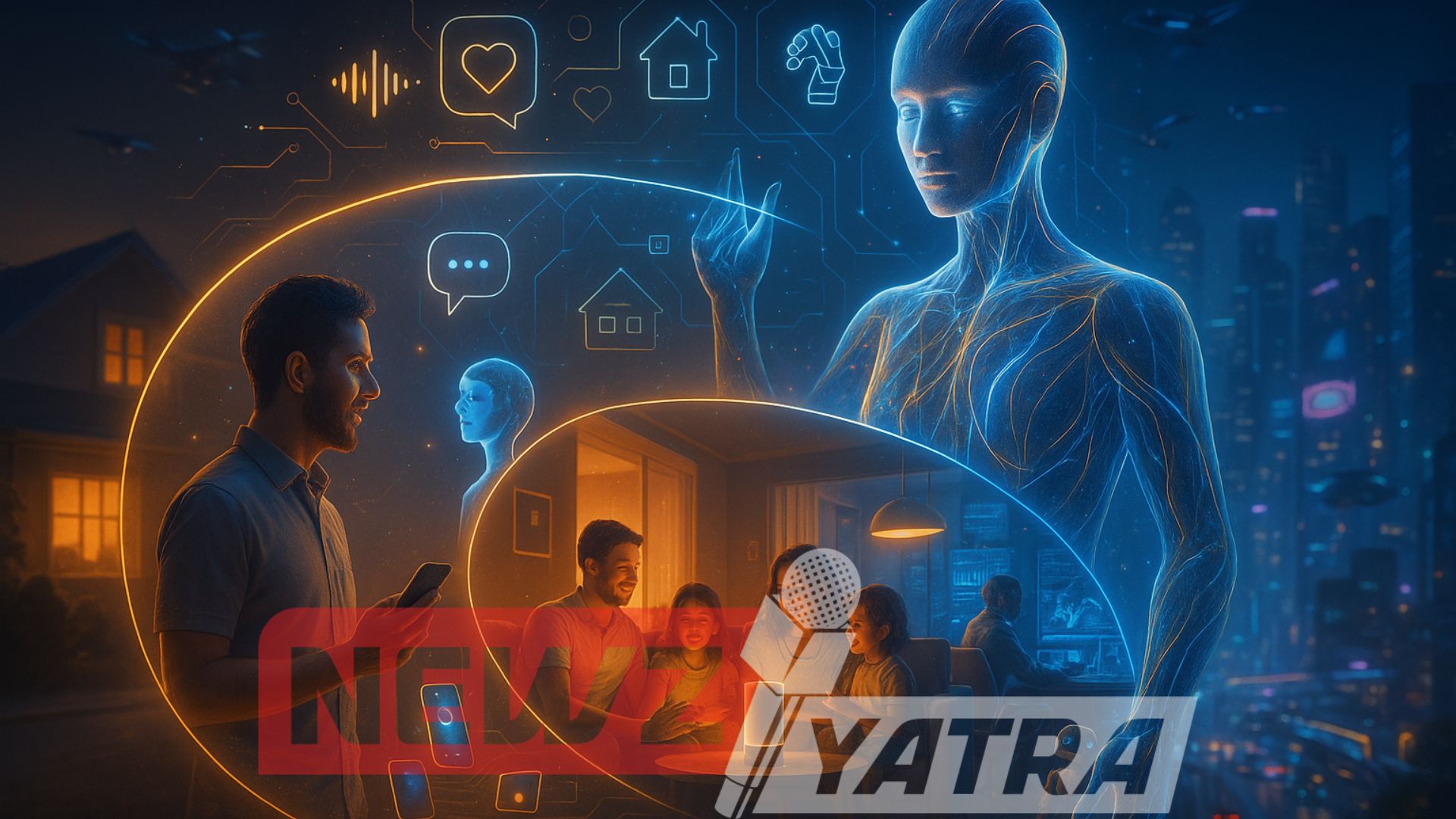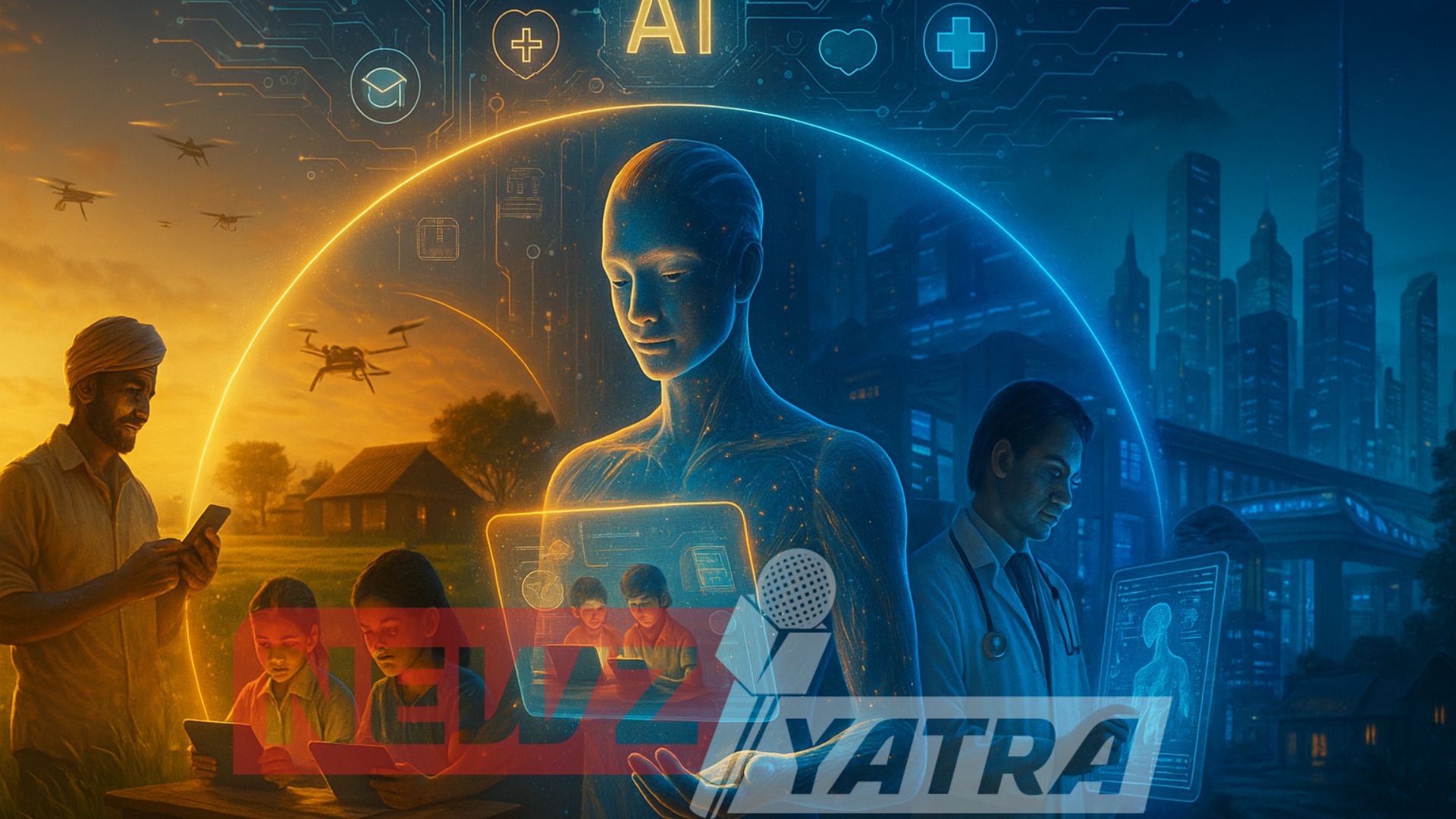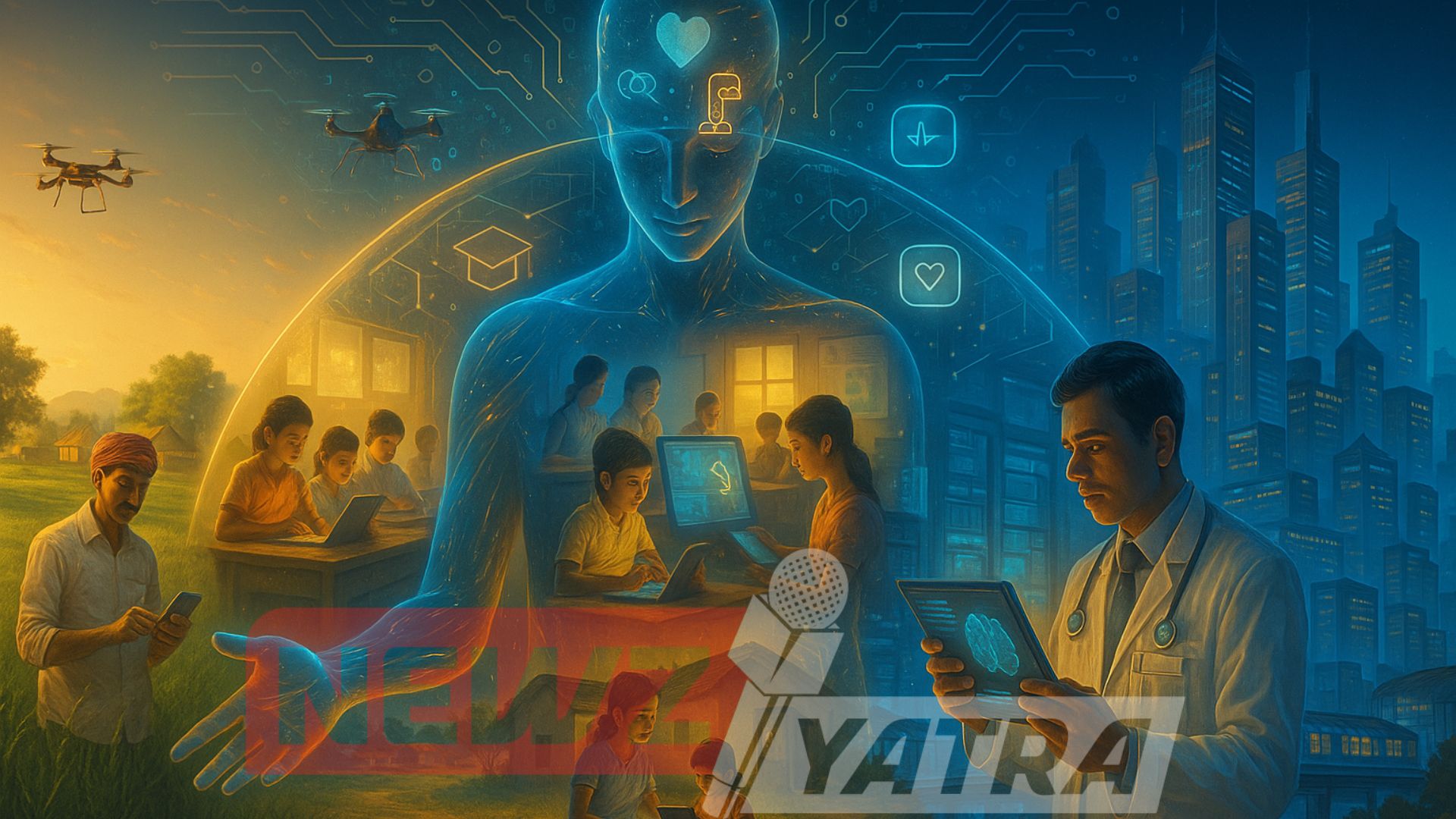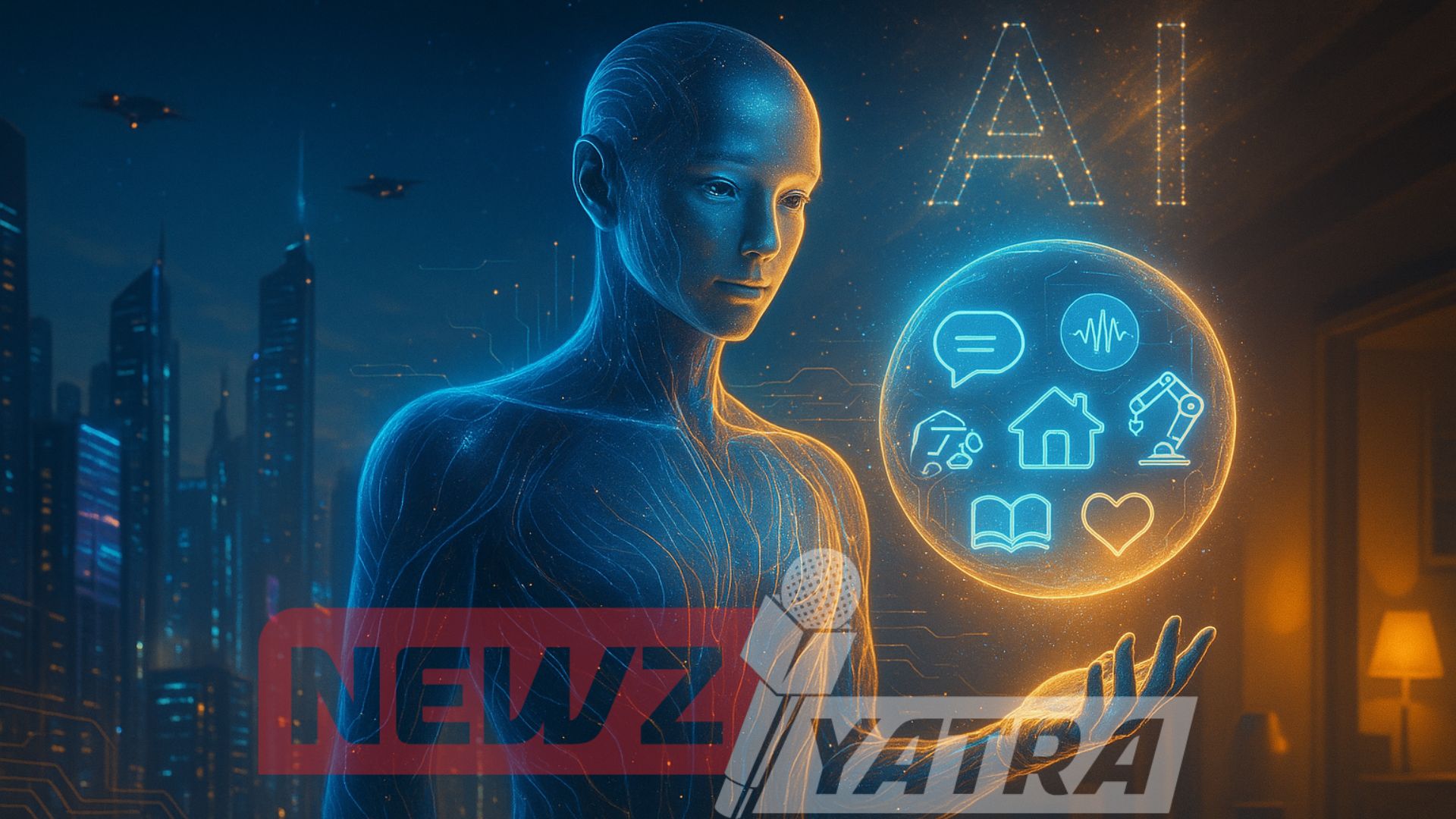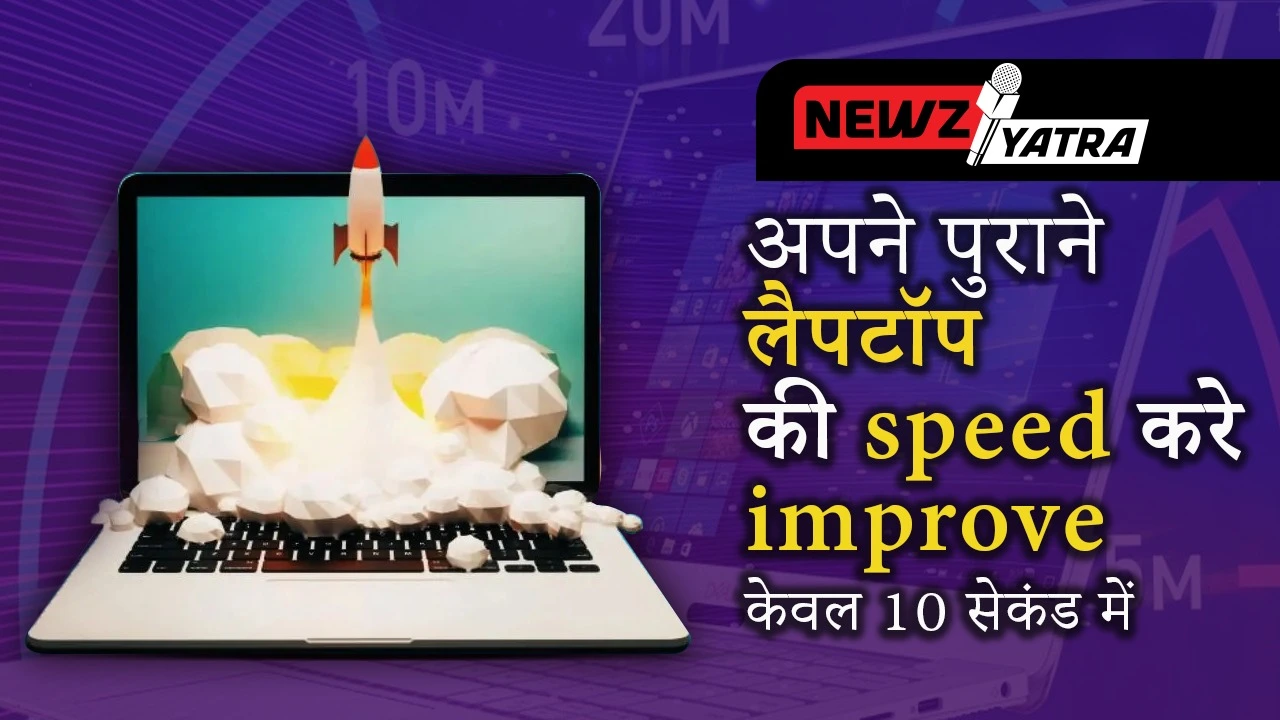How to Start a Career in AI Without a Tech Background! (Yes, It’s 100% Possible)
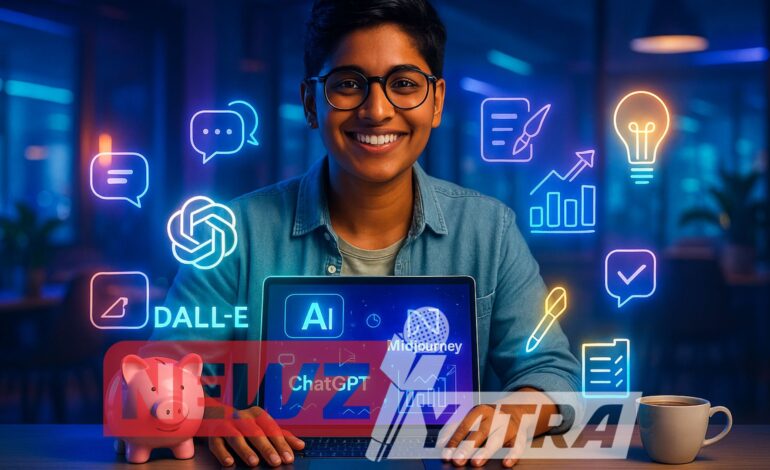
Thinking about building a career in Artificial Intelligence but don’t have a technical degree, coding skills, or a math-heavy background? You’re definitely not alone — and here’s the great news: you don’t need to be a tech expert to get started in AI.
The world of AI is no longer limited to software engineers and data scientists. With the rapid rise of accessible AI tools like ChatGPT, DALL·E, Midjourney, Runway, and many more, there’s now a growing demand for people from non-technical backgrounds — whether you’re from content, marketing, HR, education, sales, design, or any other field. (how to start a career in AI without coding)
In this blog, we’ll walk you through practical steps to break into the AI space, show you real roles you can explore without coding, and share the skills and mindsets that can set you up for success — no tech degree required.
Whether you’re starting fresh or looking to pivot, AI has space for you. Let’s dive in.
Your 7-Step Roadmap to Launch an AI Career (how to start a career in AI without coding)
Step 1: Change Your Mindset — AI Isn’t Just for Coders
Let’s start by breaking the biggest myth:
You don’t have to be a data scientist or software engineer to work in AI. (how to start a career in AI without coding)
In today’s world, AI is no longer a “tech-only” territory. Companies across industries are actively hiring “AI-savvy professionals” — people who may not know how to build AI models, but definitely know how to use AI tools smartly to improve content creation, marketing campaigns, customer experience, team productivity, education workflows, and much more.
Think of it this way: you don’t need to know how a car engine works to drive a car — you just need to know how to steer it. Similarly, you don’t have to write code to harness the power of AI tools like ChatGPT, Jasper, Canva AI, Midjourney, or Notion AI. (how to start a career in AI without coding)
If you’re curious, adaptable, and open to experimenting with these tools in your field, you’re already ahead of the curve. The first step is simply believing that you belong in this space — even without a technical background. (how to start a career in AI without coding)
Step 2: Explore Non-Tech Roles in AI (how to start a career in AI without coding)
AI isn’t just for coders — it needs communicators, creatives, and problem-solvers too. Here are some fast-growing, non-technical roles:
- Prompt Engineer – Write smart prompts to get better results from AI tools
- AI Product Manager – Connect users and tech teams to build useful AI products
- AI Trainer – Teach AI by labeling and organizing data
- Content Strategist (AI) – Use AI to create or optimize marketing and editorial content
- UX/UI Designer for AI – Make AI tools easy and enjoyable to use
- AI Ethics or Policy Analyst – Ensure AI is safe, fair, and responsible
- AI Sales & Customer Success – Help clients use AI tools effectively
You don’t need to code to work in AI — just curiosity, creativity, and a willingness to learn.
Step 3: Understand the Basics of AI (No Coding Needed) (how to start a career in AI without coding)
You don’t need to build AI — but you should understand how it works.
Learning the core concepts will help you communicate better, make smarter decisions, and stand out in non-tech roles. Focus on questions like:
- What’s the difference between AI, machine learning, and deep learning?
- How does a chatbot like ChatGPT actually work?
- Why is data so important to AI systems?
Great (Free) Learning Resources: (how to start a career in AI without coding)
- AI for Everyone by Andrew Ng (Coursera)
- Elements of AI (Beginner-friendly online course)
- YouTube – Try: “AI for non-techies”
Spend just 1–2 weeks exploring these, and you’ll start to understand and speak the language of AI — no coding required.
Step 4: Start Using AI Tools in Daily Life (how to start a career in AI without coding)
The best way to learn AI is by using it in your daily work. You don’t need a classroom — you need curiosity and a few tools.
Start experimenting with AI platforms based on your interests or profession. For example, use ChatGPT, Notion AI, or Jasper to generate content or brainstorm ideas. If you’re into visuals, try Canva AI, DALL·E, or Midjourney for design and image creation. Want to work with video? Explore tools like Runway ML, Pika Labs, or Descript. For making presentations, tools like Tome and Gamma.app can speed things up creatively. And for writing and editing, GrammarlyGO or Notion AI can be everyday productivity boosters.
Pick just 2–3 tools that feel relevant to your work or interests. Use them regularly — for content, design, planning, or productivity. You’ll quickly build hands-on experience, confidence, and even create portfolio-worthy work without needing any technical background.
Step 5: Build a Micro-Project (Yes, Even If You’re a Beginner) (how to start a career in AI without coding)
Instead of just saying “I’m learning AI,” show it through action.
Create a small but meaningful project that demonstrates how you’ve used AI tools in a real-world way. For example:
- Write a blog post using ChatGPT
- Design a product mockup with Midjourney or Canva AI
- Create a case study: “How I used AI to save 5 hours a week at work”
- Record a short screen-share video: “5 AI Tools That Boost My Productivity”
Once done, share it on LinkedIn, Medium, or your portfolio. These micro-projects make your learning visible — and they stand out to recruiters. It shows you’re not just curious about AI, but also proactive and capable of applying it.
Step 6: Combine Your Current Skills with AI (how to start a career in AI without coding)
AI isn’t here to replace your career — it’s here to amplify it.
The smartest way to break into AI is by applying it to what you already know. For example:
- If you’re a writer, use AI tools to brainstorm ideas, edit drafts, or speed up content creation.
- In HR? Try AI for resume screening, job descriptions, or mock interview tools.
- If you’re a teacher, use AI to create personalized lesson plans or quizzes.
- In sales or marketing? Automate email writing, customer research, or campaign planning with AI.
Ask yourself: “How can AI make my current job 10x better or faster?” (how to start a career in AI without coding)
That’s your entry point. When you merge your existing expertise with AI tools, you become exactly the kind of AI-powered professional today’s employers are looking for.
Step 7: Start Small, But Start Today (how to start a career in AI without coding)
You don’t need a full-time AI job on Day 1 — just take the first step.
Begin with small, practical opportunities that help you build experience and confidence, such as:
- Freelance gigs where you use AI tools to deliver faster, smarter work
- Internships at AI startups to get hands-on exposure
- Part-time roles with companies building or using AI products
- Side projects or collaborations with others exploring AI
- LinkedIn outreach, where you share your micro-projects and connect with people in the field
The most important thing is momentum. Once you’re inside the AI ecosystem, even in a small way, your growth can be surprisingly quick.

Your 90-Day AI Career Starter Plan — Even Without a Tech Background (how to start a career in AI without coding)
Feeling unsure about where to start your journey in AI? You’re not alone — and the good news is, you don’t need to figure it all out at once. Here’s a practical 3-month roadmap to go from curious beginner to confident AI user, even if you don’t have a technical background. Just follow this step-by-step approach, week by week. Focus on taking action, not achieving perfection.
Week 1–2: Learn the Basics of AI (No Coding Needed)
Begin by understanding what AI really is and how it works. Learn the difference between AI, machine learning, and deep learning. Explore how tools like ChatGPT and Midjourney operate, and why data plays a central role in all of it. (how to start a career in AI without coding)
Helpful beginner resources include “AI for Everyone” by Andrew Ng on Coursera, the “Elements of AI” course, or YouTube videos designed for non-tech audiences.
Your goal here is simple: build a clear understanding of AI fundamentals so you can engage in conversations and decisions with confidence.
Week 3–4: Experiment with AI Tools and Build a Micro-Project (how to start a career in AI without coding)
Choose a few AI tools based on your interests or profession. If you’re into writing, try ChatGPT or Notion AI. If you’re a designer, play with Midjourney or Canva AI. Interested in video? Explore tools like Pika Labs or Runway ML.
Then, use these tools to create a small but real project — such as a blog post, a brand mockup, or a case study showing how AI helped you complete a task more efficiently.
This stage is about gaining hands-on experience and creating something you can share or add to your portfolio.
Month 2: Share What You’ve Learned and Start Networking (how to start a career in AI without coding)
With some experience under your belt, it’s time to go public. Share your projects and reflections on platforms like LinkedIn or Medium.
You could write a short post on your journey so far, something like: “Exploring AI without a tech background — here’s what I’ve learned in 30 days.”
Begin connecting with others in the AI space. Join relevant LinkedIn groups, Discord communities, Reddit threads, or subscribe to newsletters focused on AI trends and tools.
The aim is to become visible and show others that you’re active, engaged, and serious about your learning journey.
Month 3: Look for Freelance Gigs, Collaborations, or Internships (how to start a career in AI without coding)
Now that you have a basic understanding, a few projects, and some networking activity, it’s time to seek practical opportunities.
Start small — apply for freelance work where AI tools can boost productivity. Look for internships or part-time roles with AI startups.
You can also reach out to creators or small businesses and offer to help them use AI for writing, content planning, or design. Collaborating on a side project is another great way to build real-world experience.
The goal here isn’t to land your dream job immediately — it’s to get your foot in the door and build momentum.
In 90 days, you’ll have knowledge, skills, a portfolio, and professional connections — everything you need to grow in the AI industry, no coding required.
From Curious to Capable — Your AI Journey Starts Now (how to start a career in AI without coding)
Breaking into AI without a tech background might feel like stepping into a whole new world — and in many ways, it is. But here’s the truth: you don’t need to code to contribute. What you do need is curiosity, creativity, and the courage to begin.
AI is no longer just a space for engineers — it’s a toolkit for writers, educators, marketers, designers, strategists, and innovators like you. The sooner you start experimenting, the sooner you’ll realize how valuable your unique perspective is. (how to start a career in AI without coding)
So don’t wait for the perfect course, the perfect timing, or the perfect skill set.
Just start — and let momentum take care of the rest.
The AI world is wide open.
And there’s a place in it with your name on it.
Where to Invest in India Right Now: Future-Ready Sectors for Long-Term Returns!
